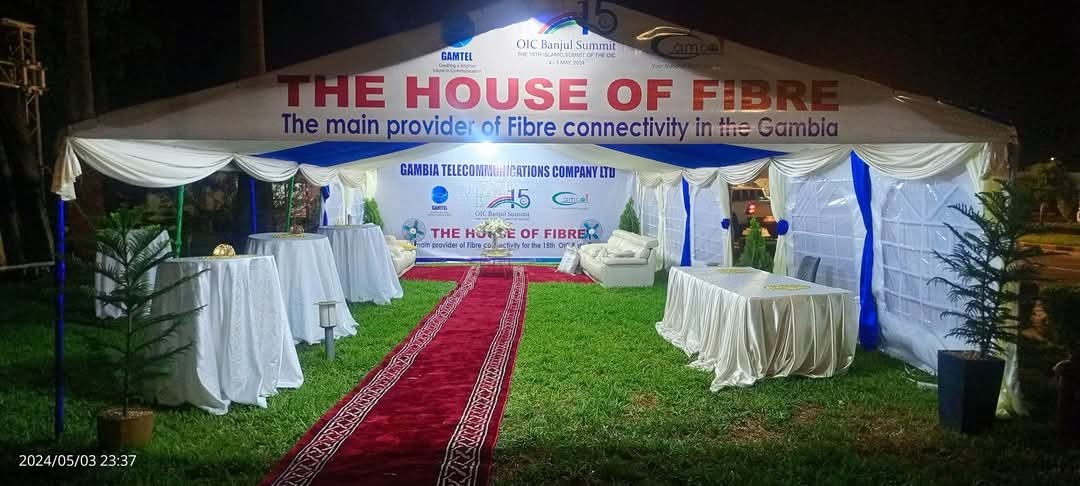Who Will Pay? GAMTEL Faces Privatisation While D197M in Public Debt Remains Unpaid
Gamtel Tent
By Edward Francis Dalliah
In March 2025, Askanwi reported on the worsening financial crisis at the Gambia Telecommunications Company Limited (GAMTEL), revealing that the state-owned enterprise is owed D197 million in unpaid arrears. These debts, detailed in the April 2024 Performance Audit Report by the National Audit Office, span across government institutions and State-Owned Enterprises (SOEs).
Auditors noted that “despite public institutions being allocated communication budgets annually, GAMTEL has failed to suspend or terminate services in the absence of payments.” Private businesses and individuals also owe significant amounts, but the “audit team was unable to determine the total owed by these private and business customers due to GAMTEL's lack of data on this crucial aspect of the business.”
Now, four months after Askanwi’s initial report and with no debt recovery plan publicly announced, GAMTEL is edging closer to entering a private-public partnership. Appearing before parliamentarians on 23rd June 2025 during the State of the Nation Address (SONA) debate, the Minister for Communication and Digital Economy, Hon. Lamin Jabbie, answering concerns raised regarding the state of GAMTEL and GAMCEL, pointed out that a social plan document is “looking at how [government] can go ahead with the privatisation process that is for GAMTEL and GAMCEL.”
The Minister told lawmakers, “For GAMTEL, we will be bringing on board a private partner that will be investing in the company, and then we will be investing in the infrastructure of the company.” Hon. Jabbie went further to announce that there is something the government is “envisaging to push through and hopefully, within the next month or so, possibly that contract would be signed.”
Although the minister has announced that a contract will soon be signed, no information has been released regarding which private company is involved. This lack of communication raises pressing questions about transparency and whether the government will settle its debts to GAMTEL before handing over operations to a private entity.
Mounting Arrears, Unresolved
According to the audit, a review of arrears owed by Ministries, Departments, and Agencies (MDAs) and SOEs, combined with discussions with GAMTEL management, revealed that as of February 2023, the company was owed a total of D197 million for telecommunications services, including both voice and internet. This includes D152 million from MDAs and D45 million from SOEs arrears accumulated between 2015 and 2020.
The audit paints a sobering picture of a company hindered by systemic inefficiencies, as the company lacks both a structured debt recovery framework and a formal credit control policy. This absence of internal controls has allowed clients, particularly public institutions, to continue accessing services without settling their bills.
While GAMTEL has occasionally disconnected defaulting customers, these actions are frequently reversed by executive directives, which restore services without requiring repayment. According to the auditors, such interference has only worsened the company’s already fragile financial state.
Billing System Failures Compound the Crisis
Beyond the weak debt recovery, the audit also uncovered significant flaws in GAMTEL’s billing infrastructure. In 2020, for instance, web hosting clients were not invoiced at all, resulting in a direct revenue loss of D229,000. Furthermore, due to ongoing financial constraints, GAMTEL has been unable to renew its billing software license, leading to inaccurate billing and further impairing revenue collection.
The Bigger Question
As the government moves forward with plans to privatise one of its most essential public utilities, the lack of a clear strategy to address longstanding debts raises urgent questions. Will they settle what they owe the company before signing a contract with a private company? Or will they act as if they are not owing GAMTEL anything? With the fate of a national asset in the balance, one thing is clear: accountability is no longer optional; it is long overdue.

